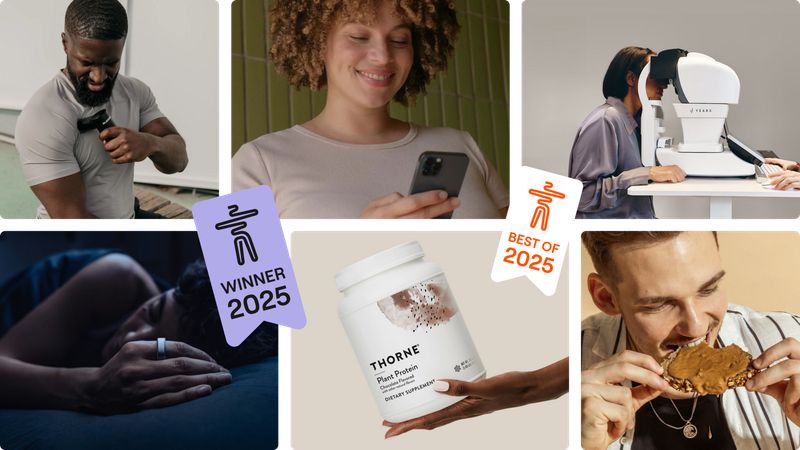Can mindfulness extend your life? The science behind longevity and mental well-being

Stress is a common factor that negatively impacts both mental and physical health, contributing to accelerated aging and chronic disease. Mindfulness, offers promising tools to reduce stress, improve well-being, and potentially support a healthier, longer life. This article takes a closer look behind the curtains to explore whether mindfulness is truly evidence-based.
What is mindfulness?
Mindfulness is defined as the practice of being fully present and engaged in the moment. At its core, it’s about awareness—observing thoughts, feelings, sensations, and the world around without judgment or distraction.
Mindfulness practices, such as meditation, help achieve this state of awareness and promise physical and mental changes that benefit daily life.
The problem with mindfulness research
Mindfulness is not a new concept. Many practitioners report increased well-being, reduced stress, and improved attention and focus. However, while mindfulness seems omnipresent in modern discussions, scientific research on the subject and meditation remains in its infancy.
A search in the research database PubMed for “mindfulness” reveals significant growth in publications, from virtually none in 2000 to 1,259 in 2022—up from just 250 a decade earlier.
There are three primary ways in which the effects of mindfulness have been studied in clinical trials:
- • Qualitative assessment, such as those conducted in the context of cognitive therapy (these are often very subjective).
- • Measuring objective changes in the body, such as immune or stress markers in the blood.
- • Visualizing and measuring changes in the brain, such as neuroplasticity, using functional imaging.
A major challenge in mindfulness research is the lack of a standardized definition, which makes comparing and drawing conclusions from different studies difficult. Additionally, the types and durations of mindfulness interventions vary widely. Many studies rely on self-reported data, which is subjective, and often involve small sample sizes, limiting the reliability of conclusions.
To assess the proven effects of mindfulness, emphasis is often placed on systematic reviews or meta-analyses.
Meta-analysis and systematic review explained
- Meta-Analysis: A statistical analysis combining the results of multiple studies (in this case, clinical trials) to provide a single, more precise answer to the research question. Essentially, it is an analysis of several existing analyses.
- Systematic Review: While it may include a quantitative meta-analysis, it can also involve systematically reviewing all available research using a rigorous approach to ensure no relevant studies are overlooked.
Effects of mindfulness practice on mental health
- Almost certainly helps with Anxiety and Depression: Practicing mindfulness meditation effectively reduces the negative effects of psychological stress and is particularly effective for individuals with severe symptoms of clinical depression. [1,2]
- To some extent reduces Stress: Evidence suggests that mindfulness practices moderately reduce stress and lower cortisol levels. The effects are more pronounced in individuals experiencing high levels of stress, such as healthcare workers. [3,4]
- Improves Sleep (if you have severe problems): Mindfulness practices are beneficial for addressing insomnia and other clinically significant sleep disorders but do not necessarily optimize sleep for those without severe issues. [5,1]
- May improve Cognitive Functions and Reduce Age-related Decline: Mindfulness practices may enhance cognitive functions such as short-term and autobiographical memory, cognitive flexibility, and awareness. However, evidence remains weak due to poorly designed studies. [6,7]
- Shows promise for specific conditions: Mindfulness practices have shown potential benefits for patients with eating disorders, addiction, psychosis, PTSD, ADHD, and autism. However, more rigorous studies are needed to confirm these findings. [7]
Effects of mindfulness on physical health
- Almost certainly helps Manage Pain: Mindfulness meditation is effective for managing chronic pain, though very brief mindfulness exercises are less impactful. [8-10]
- Potentially lowers Blood Pressure (if you have hypertension): Mindfulness practices may help lower blood pressure in specific conditions and age groups, though better trials are needed to confirm this. [11,12]
- Helps with Weight Loss: Mindful eating can aid in weight loss, comparable to traditional weight loss programs. [13]
- Reduces Inflammation: Mindfulness meditation lowers markers of inflammation, such as CRP. However, while it is often claimed that mindfulness “boosts the immune system,” evidence for this broader claim is insufficient. [14]
- May or may not lower Blood Glucose: The evidence on mindfulness and diabetes management is inconclusive. It may indirectly help by improving the mental state of patients. [7]
- May or may not decrease Cellular Aging: Experimental studies suggest mindfulness may protect telomeres, potentially slowing aging. However, the evidence is limited, and recent findings challenge simplistic views of telomere length. [15,16]
Effects of mindfulness on social health and social behavior
Mindfulness practices may enhance social health by promoting kindness, reducing prejudice and aggression, and alleviating loneliness and social isolation. Positive effects have been observed in various groups, including older adults and college students. However, more high-quality studies are needed to substantiate these findings. [17,18]
There is more to mindfulness
Advocates of mindfulness argue that assessments of its benefits should include psychological and philosophical perspectives, which embrace subjective viewpoints. This perspective highlights how mindfulness fosters a heightened state of awareness, allowing individuals to experience the present moment without judgment or distraction. Such awareness supports improved emotional regulation, helping individuals recognize and address negative thought patterns while developing healthier responses to experiences.
Mindfulness also emphasizes living authentically in the present, encouraging a deeper understanding and acceptance of life’s impermanence. This can cultivate a sense of inner peace and contentment. While these benefits may not be easily measured through biological markers, they hold significant potential to enhance quality of life and foster a deeper desire to live longer.
References
Author: Karol Domagalski
Family and health first. Big on sports, nutrition, longevity, travel, and all things digital. Founder of New Zapiens, on a mission to help people live their best lives.




